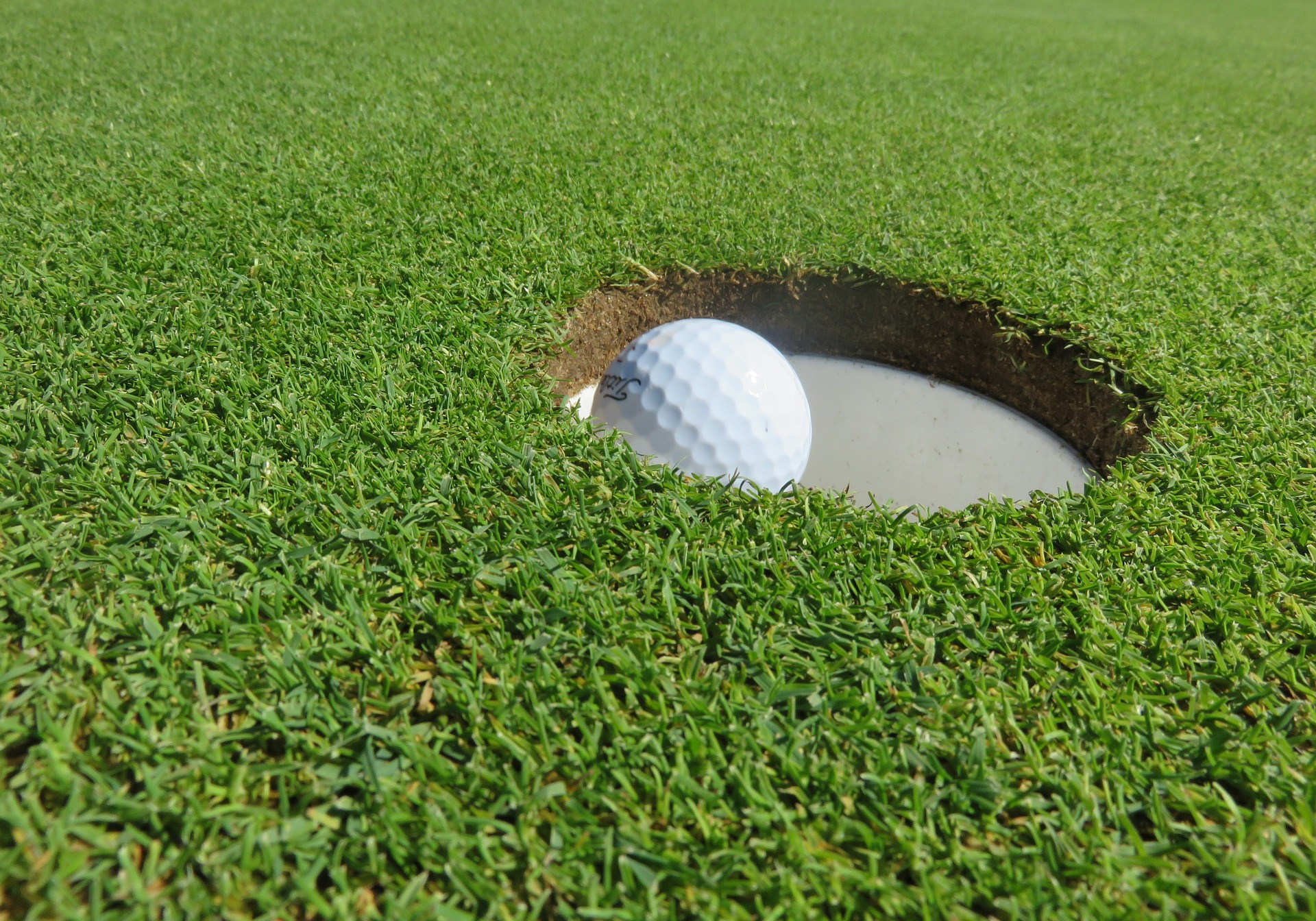If you are seriously considering lowering your scores, then you must take your putting seriously, as roughly half the strokes you play in a round of golf are likely to be on the putting green. However good you are at driving, pitching, and chipping, if your putting is not up to standard, you will never make the next level. My Dad told me the famous quote when I was probably about 12 or 13, ‘Drive for show putt for dough’, this says it all! That is why it is quite incredible that putting is not often concentrated on.
Tips for setup:
First of all, I’d just like to say that there is no one correct putting grip/posture/stroke, there are wide variations, so if your technique is different, don’t worry, some of the top golfers have very different putting actions e.g. Bernhard Langer, Ben Crenshaw and Tom Watson all have very different techniques. These are basic tips that can be applied to most techniques to help improve your game.
An ideal putting stroke should strike the ball on the up, to do this the ball should be placed opposite the inside of the left heel (for a right-hander), this results in the ball being hit on the up, and topspin is generated.
In relation to set up, the hands should be either inline with the ball or ahead of the ball, if the hands are behind the ball, then a clean consistent strike of the ball is not likely, and the common result is the ball popping up in the air.
Tension on the green is one the most destructive things that can happen to your putting, especially with the short putts, this is known as getting the ‘yips’, this is caused by moving during the stroke. This causes you to ‘fluff’ your shot and miss your putt. To avoid this happening, concentrate on the spot where the ball was after impact rather than following the ball. This ensures that you do not move your head during impact and will help give you the clean smooth impact you require.
A simple technique to reduce the tension in the body and the stroke is simply to let your arms dangle in front of you before putting and gently shake them. This should relax your muscles enabling an enhanced sensation of feel and touch, both vital for reliable consistent putting.
Tips for the swing
Your grip should not be too tight, and your arms should be relaxed. Gently and smoothly in a one-piece action, sweep the putter backward. It is important to keep the triangle formed between your arms and the line joining your shoulders consistent throughout the whole shot and the shape should not change. The move backward should be like a pendulum movement with your arms, while your wrists remain stiff. A good tip for making sure that this is correct is by starting the action by dropping your left shoulder; this will get the pendulum motion started.
Keeping the triangle mentioned before intact, in a pendulum motion, accelerate the putter smoothly through the ball; the ball should be hit on the up. Throughout this whole period, keep your eyes fixed on the ball to avoid fluffing the putt and keep the eyes fixed on that spot after impact.
It is vital after impact that the left wrist remains firm and does not break; the follow-through should go inline with the direction you were aiming and should be the same length as the backswing.
Key points
Try and relax before playing the stroke, this will help enhance your feel and touch and help avoid the yips due to excess tension
The stroke should be a pendulum action swinging with your shoulders and arms while the wrists remain stiff.
Don’t move your head during the swing.
Swing in a relaxed smooth fashion with a smooth and constant rhythm.
Keep the wrists firm throughout the stroke.
Play the ball from underneath the eyes.
Have the ball in the front of the stance to ensure that the ball is hit on the up.
by Alastair Canaway


Comment here